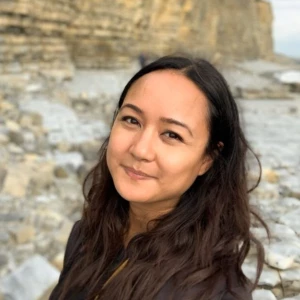I have a question about hypotheses and issue trees/case structures. Victor Cheng seems to say you should state your hypothesis, and then lay out the structure of your case/draw your issue tree. But surely if you do this and your first couple of hypotheses are disproved, you'll end up with a bunch of wasted effort and having to draw multiple issue trees? Is it not better to draw a structure of all the possible things that could be important in the case, and then take a hypothesis to go down one a
When should I state the hypothesis during a case interview?


This is a great question, that applicants struggle with quite often. I personally believe that you can't formulate a valuable hypothesis early on; however, some recruiters really look for this at the beginning of the case so you should give them what they want. Even if the hypothesis is just "yeah I think we can do what you are trying to do", say it. At worst, no harm done; at best, you made your recruiter happy.
Hope that helps?
Thx,
G.
ex-BCG Dallas
I would, personally, discount anyone who starts stating a hypothesis right after drawing out a structure. You know very little about the case, you have asked no clarifying questions, you understand just the top surface of the case yet, so you are basically stating a hypothesis that is grounded in guess-work. Here's the way I typically reach a hypothesis.
1. Once you are handed the case, go through it (some interviewers read it out, then hand data, some others just want you to read it yourself -- MBBs typically "give" the case).
2. Ask a few questions about the case. For example, if it's a falling revenue case, then at least try to narrow it down to (a) is it industry wide / economic downturn (b) are we in a seasonal industry. You can deep dive into whether we are the only one suffering, or whether only the smaller players are suffering due to an amazon-like behemoth eating their lunches later in the case.
3. Narrow down your "deep dive" areas to 1-2 places. For a revenue-loss case, you might want to focus on product quality or change in demographics or new entrants. For a profitability loss case, you might narrow it down to rising costs, inefficiencies in capital allocation (e.g., bad forex hedging, or so on), or pricing pressures.
4. Only then state a hypothesis. Something like "My hypothesis is that this is either an issue of pricing or increasing costs. I'd like to further narrow it down and to do so I'd like to look at the financials around revenues and costs."
5. Once you get the data, have reviewed, then fine-tune the hypothesis and you could say something like, "having gone through, I'd like to hypothesis that this is most likely a cost issue; I'd like to understand whether this is only us, or everyone..." etc etc..
Hemant

Short and simple recommendation: delay the explicit statement of a hypothesis until you have something to ground your hypothesis on! Just stating a hypothesis for the sake of it serves no purpose! Please also have a look at the answers provided to a similar question a couple of days ago: https://www.preplounge.com/en/consulting-forum/what-is-some-example-of-opening-hypothesis-1880
Cheers, Sidi
Thank you, it does help actually. So the point taken is that probably it mustn't be done so formally. Instead say something like: "I'll assume that we can enter the market, but in order to determine for sure, I'd like to look at variable X, Y Z." Or maybe, even more simple say: "in order to determine whether we should enter this market id like to look at variables X Y Z" [guess problem with the latter is that you haven't stated a hypothesis really..] :) I might be overthinking this. Even thinking why we don't have null hypothesis and alternative hypothesis at this point. Jk. #physicsenvy

Hi,
There are two ways to use the hypothesis:
First - presenting a structure using the hypothesis. For example, if you are having a PE (private equity) case, you should do the following:
1) Make classic structure (market, company, competitors, feasibility of exit)
2) Make subpoints (e.g. in market: size, growth rates, profitability, segmentation, etc)
3) Present your 1st level Hypothesis:
- - "In order to understand whether we should invest in Company A, I would like to check that the Market is Attractive, the Company is Attractive, the competition is favorable and we have good opportunities for of exit"
4) Present the main 2nd level Hypothesis:
- "In the market, I would like to make sure that the market is big enough and growing;
- In the company I would like to find additional opportunities for growth;
- In competition I would like to check that the market is fragmented enough;
- Finally, I would like to check if we have potential buyers and can achieve desired exit multiples"
Another way to use hypothesis is using the hypothesis to prioritize your analysis:
1) Make a structure: "Problem in sales may be related to Sales Motivation, Sales Strategy, Sales Coverage, and Sales Process:
2) Prioritize a part of the structure based on your knowledge / common sense / available data: "Taking into account that motivation is the core problem of the sales organization, I would like to prioritize this part of the analysis"
Good luck!

Hi,
The major mistake of the candidates is that they start using the hypothesis and neglect having a proper structure.
Moreover, if you perfectly solve the case without ever stating a hypothesis - you'll pass the interview. So most probably you had some other issues with the case as well and they used it as a standard feedback.
There are two ways to use the hypothesis:
First - presenting a structure using the hypothesis. For example, if you are having a PE (private equity) case, you should do the following:
1) Make classic structure (market, company, competitors, feasibility of exit)
2) Make subpoints (e.g. in market: size, growth rates, profitability, segmentation, etc)
3) Present your 1st level Hypothesis:
- - "In order to understand whether we should invest in Company A, I would like to check a number of the hypotheses - that the Market is Attractive, the Company is Attractive, the competition is favorable and we have good opportunities for of exit"
4) Present the main 2nd level Hypothesis:
- "In the market, I would like to make sure that the market is big enough and growing;
- In the company I would like to find additional opportunities for growth;
- In competition I would like to check that the market is fragmented enough;
- Finally, I would like to check if we have potential buyers and can achieve desired exit multiples"
Another way to use hypothesis is using the hypothesis to prioritize your analysis:
1) Make a structure: "Problem in sales may be related to Sales Motivation, Sales Strategy, Sales Coverage, and Sales Process:
2) Prioritize a part of the structure based on your knowledge / common sense / available data: "Taking into account that motivation is the core problem of the sales organization, I would like to prioritize this part of the analysis".
Good luck!

Interesting question. You definitely do need a hypothesis fairly early in the case - but I personally do not believe you actually need to state one at the very beginning, before you've even had a chance to ask clarifying questions.
Now - "My hypothesis is" should absolutelybe part of your vocabulary. I have seen a Principal think long and hard in front of our Partner, before saying these 3 words at the beginning of a thought. Consultants say it, show us you can be one of us and speak like us.
Again - you don't necessarily have to start the initial framework by stating a hypothesis - but it should still be implied - and state it fairly early in the case at least. The interviewer is not in your head, and cannot give you credit for what you think but don't say. If you do not state a hypothesis, we will assume you don't have one and deduct points automatically (if not always consciously)
Hope this helps -
Guennael
ex-BCG Dallas

Think of it this way...whether you state it or not, you have a hypothesis. If you didn't, you might look at the colour of the sky to solve a profit problem.
You need to direct your case somewhere. Again, if you didn't have a hypothesis on purchasing a company how would you even begin? When you begin by checking the acquirer's offer or the market growth, you are actually saying my hypothesis is that they should proceed, if the offer is attractive. This links into Vlad's comment.
So if you are doing this, which i guess that you are - tell the interviewer!

Remember, the objective of a case is not really for you to crack it, but for you to display a repeatable method: can you think of a new problem in a logical & MECE way? Can you follow your framework? Are you going to get lost & confused? ... Bottom line, can I trust you with an analysis, and will you hep me when I staff you on my project?
As you build your initial framework and develop an hypothesis, remember to use the 80/20 rule: what seems the most likely option? This is probably the one you will want to analyze first. This is why someone with 'great business sense' will be much faster all else being equal. Projects go by very quickly, you will never have time to just look at every conceivable solution (aka 'boil the ocean')
Oh, and if your first couple of hypotheses are disproved, you just truck along and move to the 3rd hypothesis.


I have a problem with the same, for it discounts the fact that in order to develop hypothesis one needs to have a decent understanding. And having a hypothesis without understanding is akin to speaking without thinking, having opinions without facts, more like stereotyping.
That said, drawing a structure of all that is important is too laborious. However, you could abstract them. For example in profitability case you can start with # Understand specific problem stream # Explore Revenue Opportunities # Explore Cost Opportunities.. Consider your framework as more of chevrons you would use to summarize your project approach from mobilisation, analysis/discovery, opportunity identification, roadmap...















